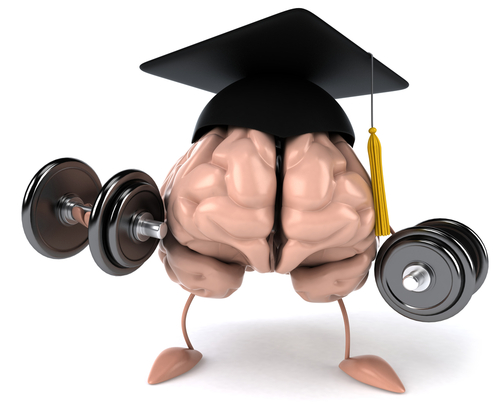5 Main Advantages of Brain Training
Brain training is just as important as maintaining your physical fitness. Research shows an hour of brain training every week helps to improve cognitive functions. The brain keeps processing information, forms memories, generates new ideas and learns on a daily basis. As such, the brain is arguably the most important part of the human body. You most likely stay active to maintain your physical health, but are you doing anything to exercise your brain? You are bound to notice the following improvements with regular brain training exercises.
1. Better Memory
You have probably experienced the frustrations that usually accompany forgetting simple pieces of information or tasks. Brain training can enhance your memory, making everyday tasks from remembering telephone numbers and names to recalling where you placed your keys and managing your household finances much easier. Active-Memory focuses on visual-spatial and verbal short-term memory as well as working memory seeing as your memory is the repository of all your experiences both the physical and those you only ever think about.
Brain training can help to better your memory by:
Enhancing visual-spatial short-term memory: Being the optical storage component of the working memory, it stores visual information for several seconds, availing the information for use in solving problems whenever required. Your visual short-term memory is therefore used when you need to process visual information like remembering the details of a land map. “Failure of rehearsing the information stored in your short-term memory almost always leads to its quick decay,” said LearningRx.
Improving verbal short-term memory: As the verbal equivalent of the short-term optical storage, it stores acoustic representations of the numbers and words read and the objects named or thought. It is, therefore, important when it comes to the acquisition of language, the ability to read, and the comprehension of instructions since it temporarily stores new words as you learn them.
Enhancing your working memory: Acts to combine temporary storage and the procession of information, enabling comprehension, reason, and the solving of problems. It, however, bears a limited capacity, which means it needs flexibility to perform everyday life tasks effectively. Working memory games involve holding a number of factors in your working memory and making alterations to them before responding.
2. Sharper Concentration
Your concentration, multitasking, and tracking abilities can improve significantly if you train your mind to pay attention and focus in spite of distractions. Attention is necessary for information to enter the short-term memory and remain available for processing. However, the importance of attention is almost always only notable once it fails for one reason or the other. Distractions such as talking on your phone while driving often cause the loss of attention. As such, your capability when it comes to inhibiting distractions is vital for learning anything new and maintaining focus. A lapse of concentration usually results in missing relevant information.
3. Greater Creativity
Flexible thinking enables you to visualize things from different perspectives, which results in a greater adaptability to change, better problem-solving abilities, and more creative thinking. The primary role of flexibility is reasoning and problem-solving skills. While some logic requires only the use of information included in a problem to find a solution, other types require detection of similarities and patterns to create a new source of information. As such, the context of reasoning often alters its nature. Brain training involves flexibility games, which usually contain images or symbols that you have to manipulate using the rule provided to work out a solution, an exercise that results in enhanced creativity.
4. Improved Analysis
Spatial and visual skills enable a better understanding, which affects almost every other aspect of life. Since the ability to analyze effectively greatly depends on spatial and visual skills, brain training can help to improve your analysis by enhancing both visual and spatial skills. Visual-spatial skills are necessary when it comes to manipulating and solving problems that contain either spatial locations or visual material.
5. Quicker reactions
Slow reactions are a constant source of frustrations, especially in the contemporary setting where almost everything depends on the power of estimation, expectation, and response. For instance, apart from focus, the ability to be an excellent driver entirely depends on these three factors. An improved analytical capability, enhanced creativity, sharper concentration and better memory all contribute towards attaining quicker reaction abilities.


















